Once reach teens, kids start to explore the world independently and wish to be respected and loved. However, many teens claim they have no friends and are lonely. Moreover, even if they want to hang out with someone, they do not know how to start and maintain a good friendship. This article will explain the 6 essential facts about friendship, teen challenges, and how parents can support them.
Related Reading:
- 11 Best Birthday Party Ideas for Teenagers
- 12 Jobs That Benefit Both Motherhood and Career in 2022
- 12 Things can Help Raise Kids with Diversity and Inclusion in Mind
- How to Talk and Teach Kids about Shaving (for Teen Boys and Girls)
- Top 10 High Paid Jobs for Women Career Consideration [2022]
- 8 Youngest Child Traits: Does Birth Order Matter?
- 11 Tips for a Meaningful Summer Holiday for Both Kids and Teens
- 8 Practical Tips to Help Teenagers in Career Selection
- 10 Ways to Be an Upstanders in Bullying
- 14 Script Example to Tell Kids About Separation and Divorce
- Teach Teens About Money (including credit card and mobile app)
- Talking About Birds and Bees (sex) to Your Kids: Tips for Every Parent
- Why Friendship is Important for Teenagers – 6 Must-Know Reasons
- 6 Tips To Help Parents Talk with Teens about Friendship
- Help! What to Do When Teen Friendship Become Toxic
Table of Contents
Fact 1: Importance of Friendship
Based on Maslow’s Hierarchy, our needs pyramid has five levels, which begin with physiological needs on the bottom level and progress to more psychological needs with each superior level. He claims that people cannot move to the next level without being fulfilled at the current stage. Love and belonging, which includes love from family members and authentic friendship, are essential to help our teen to fulfill their self-esteem.
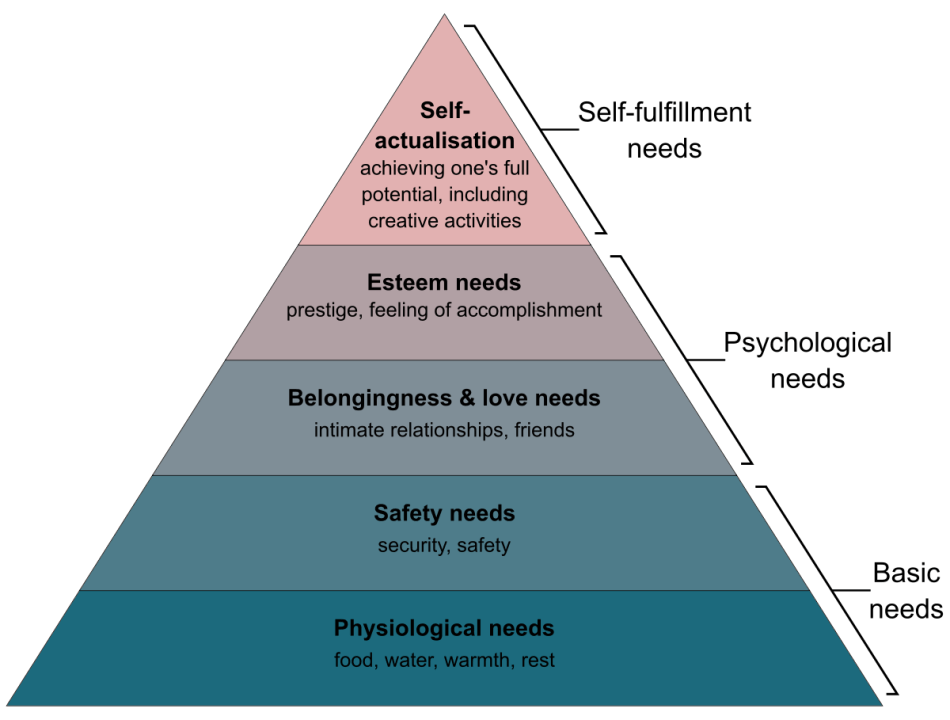
Fact 2: Friendship has Intimacy levels
Not every you know can be called a friend. Friendship has a broad level of intimacy, from the person you just met to the best friend you’ve known for life. The people on the street you smile at or Instagram/Facebook friends you never met are not your friends. How about your classmates? We have already shared the level of friends. Where is the line drawn? What are the time and trust efforts to consider as a close friend? How to adjust teen Friendship and how parents can support them?
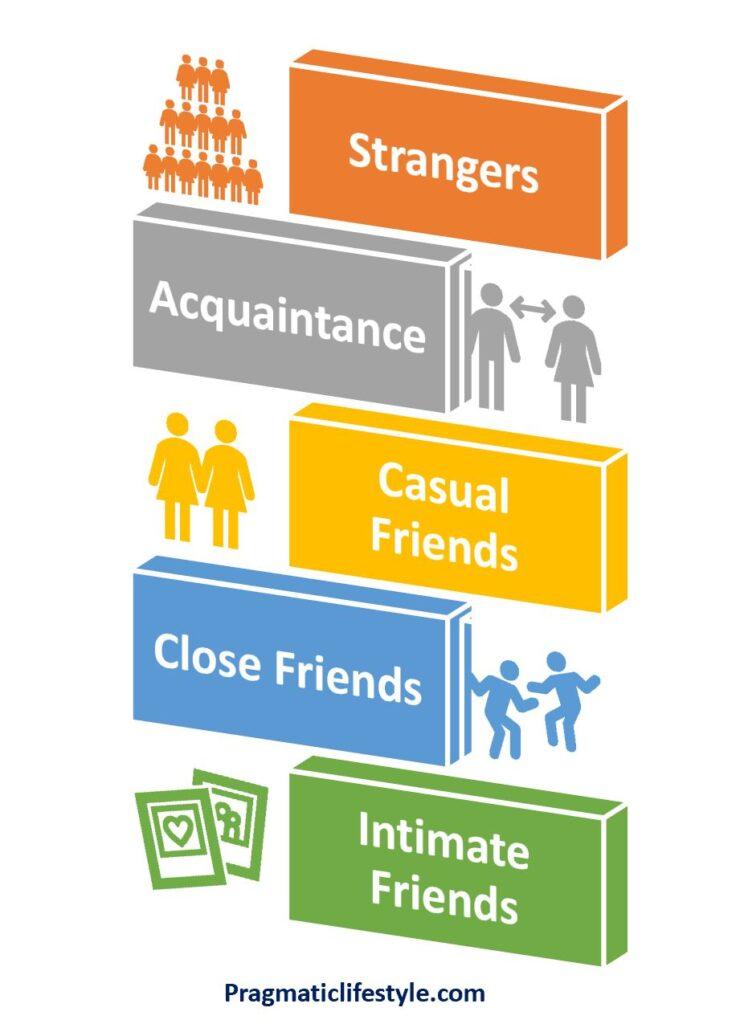
We can see from the diagram below that it takes time and trust to be considered a true friend, and what do you do with each level of friends. Teens can have 30 friends to hang out for movies but lesson than 10 can have a deep conversation. Many teens mistake true friendship, someone is popular at school does not mean that they have many friends. A person can be popular due to their looks, wealth, charms etc. However, this type of popularity can often be shallow and not based on genuine connections or meaningful relationships. True friendship involves a deeper connection, trust, mutual respect, and support. A person who is truly popular has many friends because they are kind, trustworthy, and have a genuine interest in others. So, it’s important to be cautious in distinguishing between true friends and those who are simply popular.
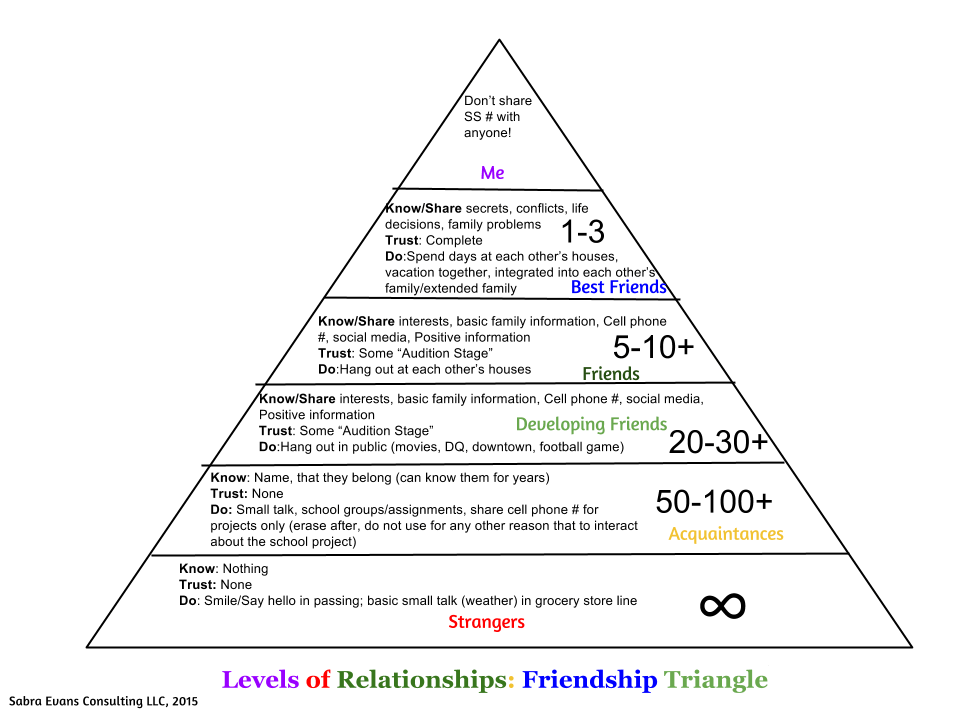
Fact 3: Characteristics of Friendship
William K. Rawlins, a communication scholar, proposed five specific characteristics of friendship:
- Voluntary: If one person wants to be the friend and the other does not, the friendship will not succeed. In simple words, it takes two persons’ effort to be friends, but only one person’s effort is not.
- Personal: Friendship is about a relationship between individuals, and it is not a group activity.
- Equality: If a friendship become not equal, then it has a high risk of going on the unhealthy side
- Involvement: Once in a friendship, you need to be engaged and have activities.
- Affect: Friendships involve emotional feelings.
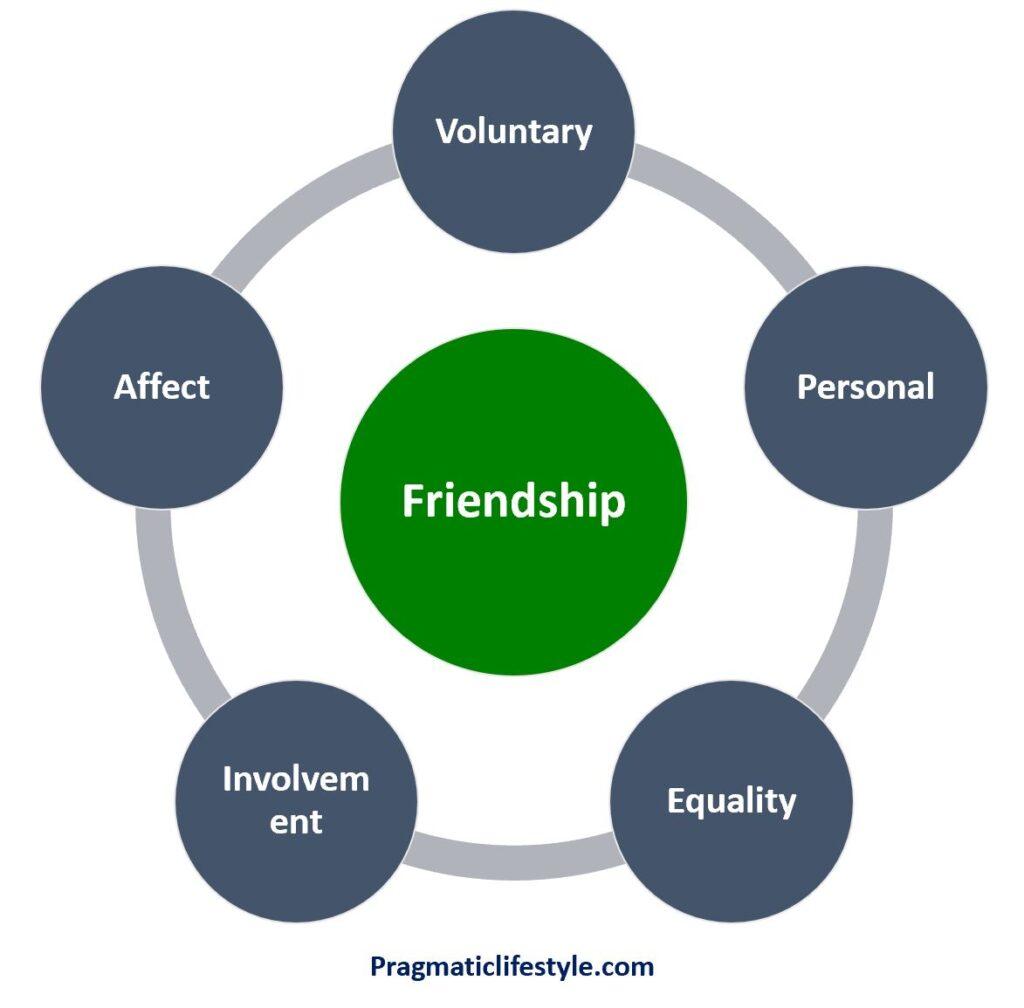
Fact 4: Teen Friendship is Challenging due to Their Age
When our kids develop empathy and social adeptness in primary school, they may have no friends or many friends and are still too young to understand deep friendships. Puberty starts around middle school, teens meet more peers, are more serious about study, and start to notice the idea of popularity. Teens are developing self-awareness and being willing to be accepted around. As they develop their style and interests, they join groups or make friends. Depending on the school culture, the most popular/cool person is often the pretty cheerleader, the strong boy from the basketball team, etc.
According to CDC, teenagers show more concern about their body image, looks, and clothes. They experience more moodiness and go back and forth between high expectations and a lack of confidence. Teens have difficulty trusting others and figuring out healthy versus unhealthy friendship qualities.
Fact 5: Social Media Brought a New Dynamic for Friendship
Many teens’ best friend is their phone or Xbox. Parents and society have paid close attention to teens social media use. The main concerns includes amount of time teens spend on their screens, the ways teens may use social media to gossip, compare themselves to others, cyberbullying, and social media’s ability to lead some teens to radical views etc. Many teens say social media makes them feel more connected to their friends, accepted, and as if they have a support system. Video games are essential in developing and maintaining friendships – especially for teen boys. Roughly three-quarters (78%) of online gaming teens say they feel more connected to existing friends with whom they play games. For boys, that share is even higher, with 84% saying networked games make them feel more connected to friends when they play, compared with 62% of girls.
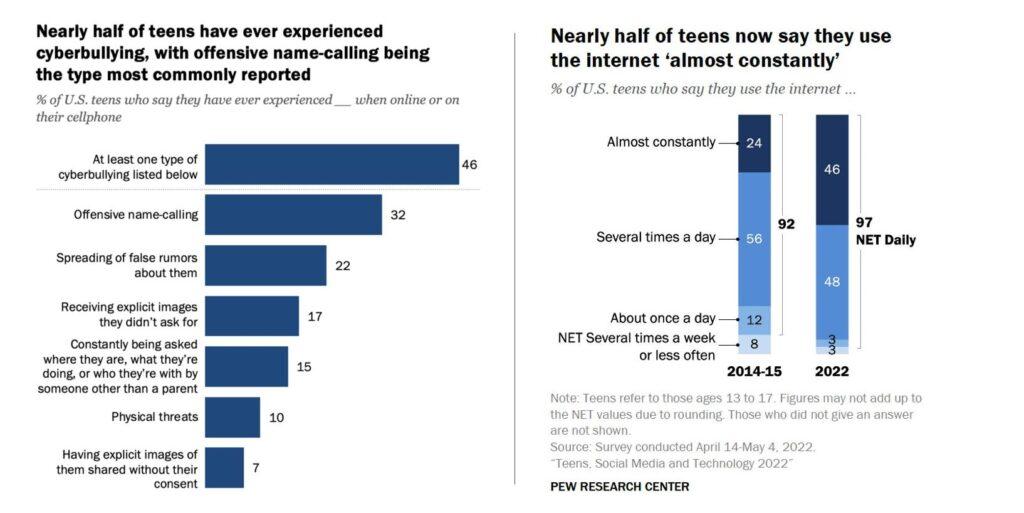
Fact 6: The Types of Friendship
The ideal friendship is healthy and enjoyable for both parties. Once the friendship is not enjoyable anymore, e.g., both teens are busy with their extra curriculum activities and do not have enough time to play together. Then the relationship starts to warn you a little bit. However, if the friendship is still delightful but unhealthy, e.g., teens spend a long time playing video games. Then the relationship became problematic. And soon, you will get a notice that your school grade is dropping due to lack of sleep. If the friendship is neither not enjoyable nor healthy, then the relationship is toxic, and time to stop the friendship.
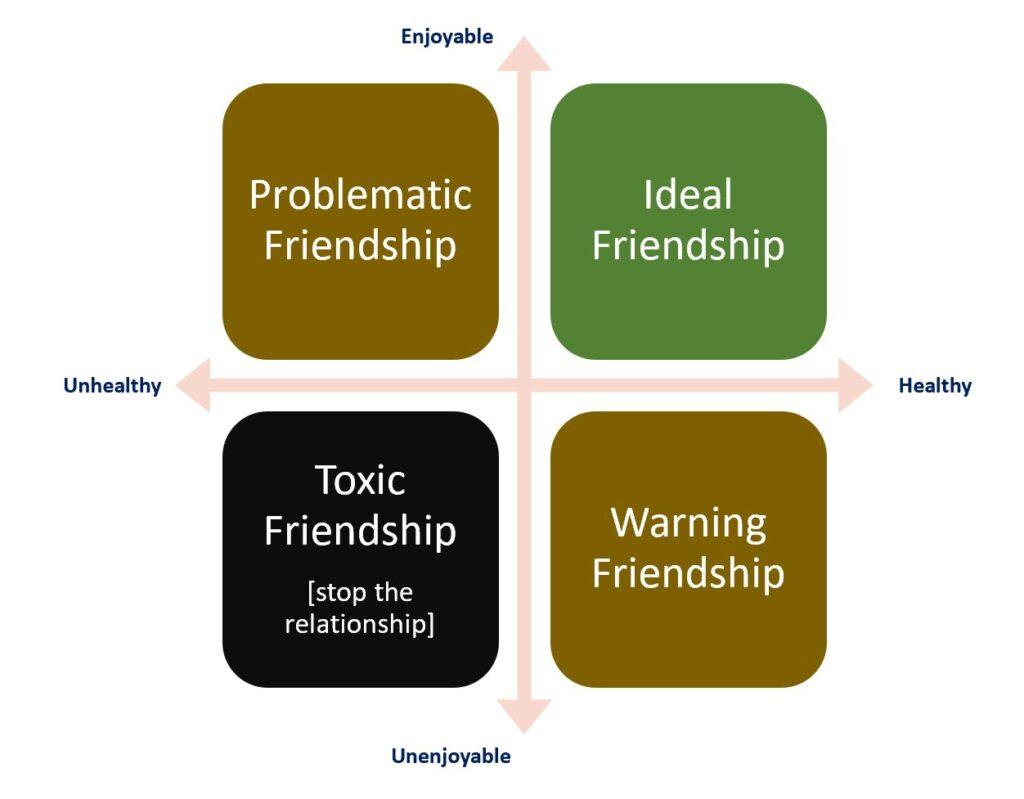
Can Parents Help Their Teens Improve Friendship?
Teen are the friendship owners and need to take the challenge themselves and learn the essential friendship facts, parents cannot make friends for them, but support them to manage their social lives and help them navigate situations if needed. Loneliness is a common problem for many teenagers, but often, with a bit of support and encouragement, they can get better with time.
1. Before friendship, prepare our teens
a. Self-esteem, become your own best friend
When you do not have a good friendship, please do not force it or desperately look for it. You do not have a good friend yet, not because you are not worth it, but simply because it is not the right timing. Zoom it out as external, and it is more the others missed an opportunity to meet a fantastic teen. Before friendship, parents can support teen to learn how to make himself happy by reading a good book, spending time with family, enjoy a quiet walk. They need to learn to treat themselves with love and confidence.
Listen to our kids and love them with all our hearts. Loving them won’t make them instantly popular or cause them to get invited to hang out somewhere. But it will help them get through this difficult time.

b. Discuss friendship and outline the benefits of having true friendships
There are many excellent and unique benefits to having close friendships. They feel connected, belonging, understood, seen, and supported by other teens. Spending time with friends can help with mental health and develop positive traits into adulthood. Most teenagers don’t think about what qualities they want in a friendship. Some teens will be friends with whoever is interested in them instead of identifying friendship qualities that are important to them. You can ask your teen, “What are you looking for in a friendship?”
c. Draw the friendship triangle and help them to explore possible friends
Meaningful friendship takes time and effort to develop trust from an acquaintance, then a friend, and over time and effort, a best friend. Teenagers understanding the progression can help measure where they would like to be on the friendship spectrum. Teen Friendship and Parents can support teen by talking about the triangle. Get them to write their names and fit into each category. Discuss and visit the triangle regularly.
d. Model them by your friendships
Leading by example is one of the best ways for teenagers to learn and choose to change behavior on their terms. It’s hard to tell your teenager how to act; you might be met with resistance, attitude, and non-compliance. Having your friendships will show your teenager how meaningful friendships are to you, the benefits and values of friendship, and the connectedness it offers.
Most teenagers wish their parents knew how hard it is to make friends in this generation. And with the rise of social media, teens are plugged in more than ever. Understanding the basics of how teenagers make friends can help provide your teens with opportunities to meet other teens and set them up for success when interacting with others. Teenagers can resist sharing with their parents, and modeling healthy friendship behavior with other adults can be your golden ticket.
e. Show your teen that you trust their decision
Sometimes we are surprised by our teens friends’ behaviors. Though friends indeed are reflections of your teen’s personality, don’t judge them right away. Talk about why they became friends, and In case he finds trouble with his friends, you are there to help, and there are ways to fix it.

2. Making Friends
Teenagers who are friendly, smiling, and demonstrating positive body language are more likely to attract other peers. We naturally want to be around people who are positive, joyful, and optimistic most of the time, and smiling and being approachable are two ways to attract new friends. Parents can encourage several communication skills to support teen friendship.
a. Training Teens on Communication
Try to get your teen into discussing easy topics like music, films, or sport. Please encourage them to chat with regular people they deal with, like salespeople and neighbors, and get them to make their appointments over the phone. Small talk skills will help you meet new people for the first time.
b. Practice ice-breaking moments and be aware of body language
Icebreaker is always impressive; practice with your teens with some ice-breaking topics, e.g., an appropriate joke, a quick compliment, a discussion on a recent social topic, or a fun comment/question on the current situation.
Body language can communicate if a person is open and ready to talk to someone. Smiling and eye contact with people signal that you notice them and are open to talk.
Most people enjoy getting a compliment. You can try to compliment someone when you walk by, such as “That’s a cute dog!” or “awesome hair,” etc.
Once you are in a social environment with people, you do not know much. The quickest conversation way is to comment on the situation. For example, “I didn’t expect music here.” You might ask questions like, “So, what brings you out tonight?”
c. Support the way your teens like to socialize
Teen will feel more comfortable in certain situations to have friendship, parents can support them by allowing participating in the situation. e.g., some teens like to dance and would like to meet dancers, then encourage them to join a dance club. Others prefer to make friends via events, motivate them to participate in student unions, etc. If your teen finds it more accessible to converse online, then forums and gaming may be the ideal places to build their confidence.
d. Encourage Them To Leave Their Comfort Zone
Encourage your teen to step out of their comfort zone at school, by sitting with a group at lunch, find somebody who takes a similar route to school and travel together, join a sport or club, speak up in class, do a presentation, invite playdates over after school. These opportunities are for friend-making and teens to develop themselves to step out of their comfort zone. They can choose an activity that most interests them. If your teen is interested in music, they can join a band or choir. If they like sports, try joining a sports event or team for a match. They can also join school committees or volunteer in local communities, such as animal rescues, scouting, charities, churches, etc. Your teen will meet peers with similar values in helping others, serving the community, and giving back.
e. Remind Them Friendship is Double Way
Friendship is a bit like table tennis. There is back and forth, and both people need to play it. If one is always giving while the other is passively accepting, it does not work in the long term. Remind them no one can control another person’s friendship.
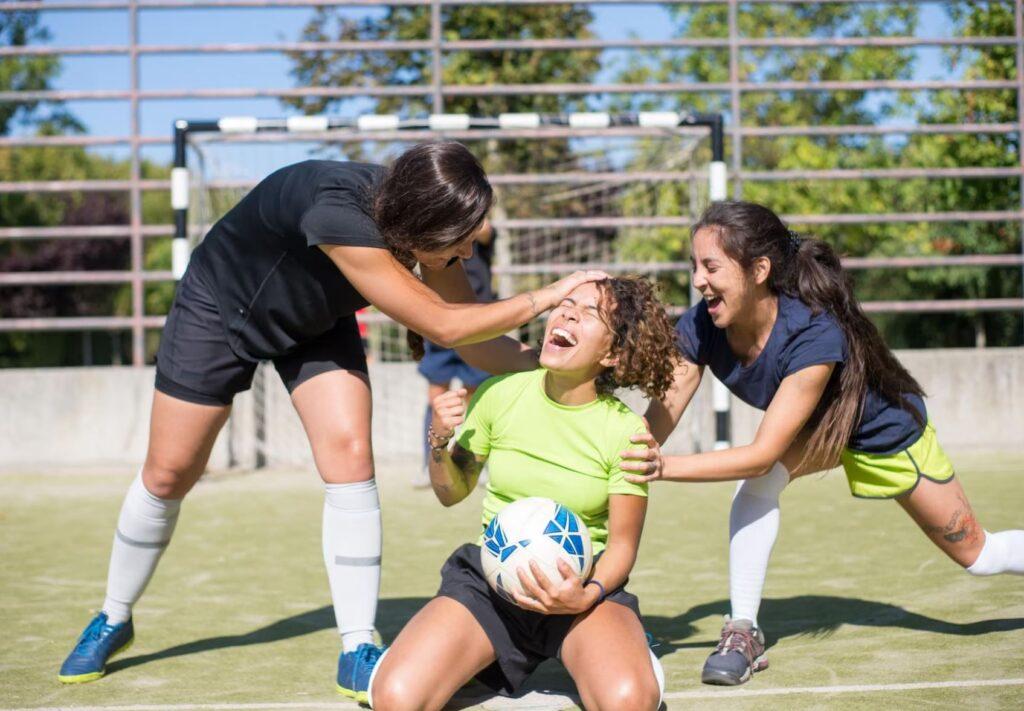
3. Maintain Friends
Friendship is not always going happily forever. Teens might fight, hurt, or be jealous of each other. It may be due to different opinions, romantic relationships, other friends, or certain behaviors in real life. Teens need to understand that authentic relationships can survive through open and honest communication. How to maintain their friendship?
a. Be a good listener and keep friends’ secrets
Teenagers need to cultivate positive relationships and treat their friends with kindness and respect. Good communication, trust, and empathy are critical components of strong and healthy friendships. When your friends share their thoughts and feelings with you, you must give them your full attention and show that you are interested in what they have to say. Keeping a friend’s secrets is also crucial to being a trustworthy friend. When a friend confides in you, it’s essential to keep that information private and not share it with others, even if it may seem tempting. This shows that you respect your friend’s privacy and are committed to preserving the trust in your friendship.
b. Teens do not need to agree on everything to be friends
As friends, you do not have to synchronize everything to consider friends your soul mate. You can disagree on things and agree with the disagrees, such as the music taste or movie selections. Having friends with different perspectives can broaden teens understanding and diversity. Maybe it is worthwhile to try new things out. But exchanging ideas or agreeing on differences does not mean you do not respect your friend. When friends have differences, they must find ways to compromise and work through their disagreements healthily and respectfully.
c. Establish Boundaries and step in as a last resort
It is undoubtedly that parents should give their teens some space to figure things out for themselves and let them learn from their mistakes. So, step in when necessary and set clear boundaries and expectations for your teen’s behavior and social interactions. This can help ensure that positive and supportive relationships surround your teen and that they know what is and isn’t acceptable in their interactions with others. For example, if the friendship requires too much time to hang out together and school behavior falls down, or they spend too much time gaming which impacts sleep time, those are the moments parents need to step in.
4. Terminate a Friendship
Toxic friendships can be detrimental to a teenager’s mental and emotional well-being through manipulation, bullying, and a lack of support and kindness. They can damage a teenager’s self-esteem and lead to feelings of isolation, depression, and anxiety.
One of the most common forms of toxic friendship in teenagers is manipulation. This occurs when one person in the friendship uses their power to control or exploit the other person. This can take many forms, such as emotional manipulation, where a friend uses guilt or fear to control their behavior. Another form of toxic friendship is bullying, such as physical or verbal abuse, spreading rumors, or exclusion from social activities. Bullying can have severe consequences for a teenager’s mental and emotional well-being, leading to feelings of fear, anxiety, and depression.
A lack of support and kindness is a common characteristic of toxic friendships. In a healthy friendship, friends should be able to rely on each other for emotional support, encouragement, and understanding. However, in a toxic friendship, one person may constantly be putting down the other, making them feel worthless or not being there for them when needed.
To avoid toxic friendships, teenagers should be mindful of the people they associate with and the dynamics of their relationships. They should also be aware of the signs of manipulation, bullying, and a lack of support and take steps to end the friendship if necessary.
Final Thoughts from Pragmatic Lifestyle
This article will explain the 6 essential facts about friendship, teen challenges, and how parents can support teenagers from make friends, maintain friends and also terminate friends.
- Making friends:
- Encourage them to participate in activities and clubs that align with their interests. This can provide opportunities for them to meet and bond with like-minded people.
- Teach social skills, such as how to initiate conversations, listen actively, and show empathy.
- Model positive relationship behaviors and provide guidance on navigating social situations.
- Support their independence and allow them to form their own friendships, but be available to offer advice and help when needed.
- Maintaining friends:
- Teach the importance of honesty, trust, and communication in friendships.
- Encourage open and respectful communication, even during conflicts.
- Help them understand the value of compromising and compromising in their relationships.
- Provide guidance on how to handle difficult social situations, such as bullying or peer pressure.
- Terminating friends:
- Teach your teenager that it’s okay to end a friendship if it’s not healthy or positive.
- Encourage them to think about what they need in a friendship and what they can tolerate.
- Help them communicate their feelings in a respectful manner and understand the reasons behind the termination of the friendship.
- Provide support and guidance through the process and emphasize the importance of treating others with kindness and respect, even during difficult times.
It’s important to remember that teen friendship are a natural part of growing up and that everyone makes mistakes. By providing support and guidance, parents can support their teenagers navigate friendship healthy and positive.
About Me
Hi, there. I am Lin. Together with my husband and two kids, we live in the beautiful Netherlands in Europe. I am dedicated to self-development, creating quality time for the whole family, and fully supporting kids with their potentials and possibilities with all I have learned from engineering, MBA, and 10+ years of working experience in the energy sector.



